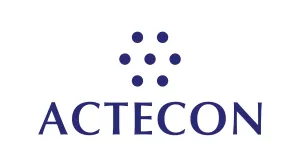1. Introduction
Personal liability rules for the competition law violations and accordingly, the tracking systems to ensure that the damages caused are covered/compensated by the violating person from his/her own resources, have been under the increasing scrutiny of the competition authorities all around the world and even despite the discrepancies, some of the EU member states support the idea of strengthening the individual liability rules by showing a tendency to criminalize competition enforcement or by vesting the authorities with the competence to disqualify undertakings' directors, like in the common law jurisdictions.
In this context, Law No. 4054 on Protection of Competition ("Turkish Competition Law") and Regulation on Fines to Apply in Cases of Agreements, Concerted Practices and Decisions Limiting Competition, and Abuse of Dominant Position ("Turkish Regulation on Fines") set forth the rules and principles to determine the amount of fine that will be imposed upon the undertakings as well as their employees who violated the Turkish Competition Law. Therefore, under the Turkish Competition Law, the employees having decisive influence on the occurrence of the infringement could also be subject to the administrative fines.
2. Administrative Fines under the Turkish Competition Law
In cases where the Turkish Competition Authority ("TCA") resolves that a behavior constitutes an infringement, it will impose an administrative fine calculated from the infringing undertaking's turnover achieved within the year preceding the infringement decision of the TCA. Within this scope, the TCA takes the characteristics of the violation into account when determining the percentage of the fine to be imposed and thus, the consequences of an infringement vary depending on the facts of the case and specific behavior. However, the TCA is entitled to impose a base fine between two percent and four percent for cartels and five per thousand and three percent of the company's turnover for other violations.
Additionally, it should be emphasized that the TCA is vested with a right to increase the fine percentage up to ten percent of the company's turnover achieved within the previous year, by taking into account the aggravating factors such as undertaking's market power, undertaking's decisive influence, the severity of damage, recidivism of the violation, maintaining cartel after the notification of the investigation decision, not complying with the commitments made for the elimination of the competition problems within the scope of Article 4 (anticompetitive practices) or 6 (abuse of dominance) of the Turkish Competition Law, providing no assistance with the examination and coercing other undertakings into the violation.
Furthermore, Article 16(4) of the Turkish Competition Law provides that "in case administrative fines mentioned in paragraph three are imposed on undertakings or associations of undertakings, an administrative fine up to five percent of the penalty imposed on the undertaking or association of undertakings shall be imposed on managers or employees of the undertaking or association of undertakings who are determined to have a decisive influence in the infringement". Article 8 of the Turkish Regulation on Fines brings a similar provision by setting out also the minimum level of the percentage in cartel cases: "Each of the managers and employees of the undertaking who were detected to have had decisive influence on the cartel shall be separately given between three percent and five percent of the fine given to the undertaking, taking into account points such as active cooperation".
Indeed, the active cooperation of the employees with the TCA in revealing the infringement of the competition rules may be rewarded with no or reduced fine for them, provided that the quality, efficiency and timing of the cooperation play a crucial role in the infringement detection process.
Despite the clarity on the TCA's power to impose fines on persons and the amount of fine to be imposed, the term "decisive influence" on the occurrence of the infringement is defined under neither the Turkish Competition Law nor the Turkish Regulation on Fines; hence, the lack of clarity and the ambiguity on this matter may be deemed as the great discretionary power of the TCA in determining whether to impose an administrative fine on individuals. To bring more clarity to this issue, the TCA's precedents with regard to the individual liability should be examined in detail.
3. The Turkish Competition Authority's Precedents with regard to Individual Liability
In its decision dated 25.11.2009 and numbered 09-57/1393-362 ("White Meat decision"), the TCA concluded its investigation regarding whether 27 undertakings operating in the white meat market and the Association of the White Meat Industrialists and Breeders violated Article 4 of the Turkish Competition Law. This decision must be examined in a detailed way for the significance it constitutes. The White Meat decision is the first one in relation to an individual liability under the Turkish Competition Law. More importantly, it addresses the undefined in the Turkish legislation term of the "decisive influence" and sets forth the respective conditions under which the behaviors are to be considered as having the decisive influence.
Accordingly, a manager shall be considered as having the decisive influence on the realization of the infringement where he/she is:
- inviting other players in the market to coordination,
- providing suggestions to other players in the market relating to increasing prices by decreasing the supply,
- encouraging or leading other undertakings to cooperation,
- coordinating the cartel,
- offering to participate in the cartel, and
- supervising/monitoring whether the parties comply with the cartel agreement.
In the White Meat decision, in addition to approximately TRY 27.6 million (approx. EUR 6.710 million) administrative fine imposed on the undertakings, the TCA imposed three percent of the administrative fine on a natural person, the board chairman of Pak Tavuk Gıda Sanayi ve Ticaret A.Ş. ("Pak Tavuk") and a head of the Association of the Union of White Meat Industrialists and Breeders; considering his decisive influence on realization of the infringement.
In its other decision dated 03.11.2009 and numbered 09-51/1245-314 ("Bodrum Ferryboat Decision"), the TCA examined whether the Bodrum Feribot İşletmeciliği A.Ş. and Bodrum Express Denizcilik ve Turizm A.Ş. violated Article 4 of the Turkish Competition Law by being engaged in rebate practices (60% of prices) in order to exclude the new entrant(s) from the market. Following the investigation, the TCA determined the said activity as an infringement under the Turkish Competition Law and imposed approximately TRY 90.000 (approx. EUR 21.880) administrative fine on the undertakings. Unlike in the White Meat decision, in the Bodrum Ferryboat decision the TCA determined that the anticompetitive activities in question were conducted without the decisive influence of the manager of the infringing undertaking, but rather under the instructions provided by other players operating in the market. Thus, as a result of lacking the decisive influence over realization of the infringement, no administrative fine was imposed on the natural person(s).
In spite of the TCA's decisions setting out the conditions for the "decisive influence" issue, it is still not certain whether the said conditions are cumulative. In the TCA's Peugeout-11, Cargo2, Citroen3, Chamber of Jewelers4 and Steel Ring decisions5 no fine was imposed on the managers or employees and no reasoning for that was provided by the TCA, even though such sanction was demanded by the reporters7. Therefore, determination of having the decisive influence over the realization of the infringement is still not absolute in the TCA's precedents. As a result, determination of whether the manager or the employee of the infringing undertaking may face the fine up to five percent, is still not sufficiently certain and constitutes difficulties for natural persons.
The more recent decision which resulted with an administrative fine imposed on natural persons is the TCA's decision dated 05.03.2012 and numbered 12-24/711-199 ("Soda Ash Decision"). In the decision, the TCA examined whether the undertakings conspired to fix powder sodium sulfate and crystal sulfate prices and engaged in customer allocation as well as conspiring to fix raw salt prices. In the Soda Ash Decision the TCA imposed TRY 963.482 (approx. EUR 234.238) administrative fine on Otuzbir Kimya ve Sanayi Türk Ltd. Şti. ("Otuzbir Kimya") and Sodaş Sodyum Sanayi A.Ş. ("Sodaş"). Moreover, the general manager of the Otuzbir Kimya faced TRY 12.532,38 (approx. EUR 2.917) fine and general manager of the Sodaş faced TRY 8.186,04 (approx. EUR 1.990) administrative fine due to their decisive influence in the infringement of the competition law. Due to the fact that the managers administrated the agreement and coordinated other parties to comply with the agreement, the TCA determined their activities as having the decisive influence over the realization of the infringement. Interestingly, the TCA also concluded that even though sales representative and marketing supervisor of the undertakings played the decisive role in the infringement, no fine was imposed to them since they were following the orders given by their managers. Thus, the main decisive influence in this infringement was caused by the managers. This decision may also be used to argue that the conditions for the "decisive influence" do not have to be cumulative, since the TCA relied on only two of the conditions out of the ones originally set forth in the White Meat decision.
4. Conclusion
To sustain and ensure the efficient competition in the market, effective sanction system for violation of the competition rules must exist and function in a clear and unambiguous way. In Turkey, undertakings may be faced with a fine of ten percent of their total turnover generated in the year preceding the infringement decision. Moreover, natural person(s) may also face a fine of up to five percent of the fine which was imposed on the infringing undertaking. To impose such fine on natural persons, the Turkish competition law system requires the natural person to have the decisive influence over the realization of the infringement. Even though there exists no certain definition of the term "decisive influence" in the legislation, the TCA's practice of fining natural persons brings some clarity, and at the same time ambiguity, to this issue. By setting forth the conditions for the "decisive influence", it is still not clear whether those conditions are cumulative. This is something yet to be clarified by the practice of the TCA in the near future, hopefully.
Footnotes
1 Decision dated 06.08.2010 and numbered 10-53/1057-391
2 Decision dated 03.09.2010 and numbered 10-58/1193-449
3 TCA's Citroen Decision dated 23.09.2010 and numbered 10-60/1274-480.
4 TCA's İzmir Chamber of Jewelers Decision, dated 27.10.2016 and numbered 16-35/603-268.
5 TCA's Steel Ring Decision dated 30.10.2012 and numbered 12-52/1479-508.
6 Reporters opinions are not binding upon the TCA.
The content of this article is intended to provide a general guide to the subject matter. Specialist advice should be sought about your specific circumstances.



